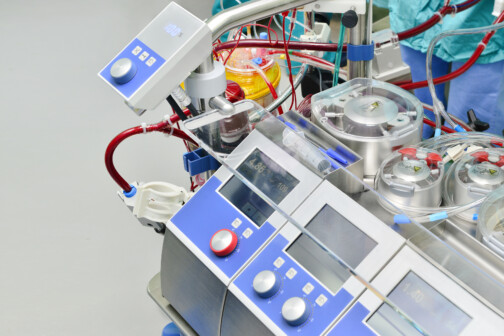Private philanthropy and UT Southwestern are coming together to fund $1 billion worth of improvements and expansions to the Peter O’Donnell Jr. Brain Institute, making it one of the largest neuro-centric infusions to an academic medical center.
The campaign resulted in more than $500 million in private philanthropy, led by Omni Dallas owner Robert Rowling, who was chair of the campaign for the Brain Steering Committee. The private funding was matched with a $500 million investment from UT Southwestern. The funds will support research, technology, faculty recruitment, facility improvements, and training in neurology, neurosurgery, psychiatry, physical medicine and rehabilitation, and neuroscience.
The timing was right for such a massive campaign because of the confluence of scientific advancement, increased need, and a generous community, says O’Donnell Brain Institute Director Dr. William Dauer. Research is making advancements in neurology, psychiatry, and genetic disorders such that science is on the brink of making a tangible impact on the lives of those who suffer with everything from depression to Alzheimer’s disease. Meanwhile, society is living longer, and people are more likely to suffer from brain disease.
“The time is right to put the brain at the top of the priority list, as it’s the great medical challenge of this century,” Dauer says. “That’s how all the pieces fit together.”
Finally, the philanthropic community in Dallas remains strong even during the uncertainty of the pandemic, when much of the fundraising was completed. Generous donors raised half a billion dollars without ever going public or branding the campaign while it was underway, a rarity for fundraising efforts.
“We want to thank everyone who contributed to this campaign,” Rowling said via release. “The funds that have been raised will make the O’Donnell Brain Institute an epicenter for research. There’s no telling what kind of discoveries are going to come out of this.”
The O’Donnell institute’s expansion will include enrolling more people in clinical trials, recruiting rising stars in several disciplines, cutting edge facility additions, broadening analytical support to process data, new imaging equipment, and machines that provide breakthrough treatments. UTSW is already home to 2,800 faculty members; its researchers have won six Nobel Prizes and include 25 members of the National Academy of Sciences, 17 members of the National Academy of Medicine, and 14 Howard Hughes Medical Institute Investigators.
While such an extensive campaign keeps eyes and minds on the future, Dauer hasn’t lost sight of the patients currently suffering from brain disease. He wants the institute to balance a focus on advancing treatment for patients today with an eye toward the future of brain disease.
“It’s exciting to talk about what might happen tomorrow, but we need to keep our eyes focused on the patients who need our help today,” he says. “It’s not just about diagnosing disease. It’s about helping patients, and their families have the highest quality of life with that disease.”
The funding will go toward countless projects and research efforts, but Dauer highlighted the institute’s work fighting neurodegenerative diseases like Alzheimer’s and ALS as a focus area. They are on the leading edge of early detection of these conditions through blood tests and advanced imaging, which could lead to their treatment. Measuring and detecting depression objectively is another area where the institute is making great strides, and the research around genetic therapy has also made an impact. Taysha Gene Therapies launched from a UTSW lab to treat several genetic conditions and has so far raised hundreds of millions of dollars.
“This billion-dollar investment reflects UT Southwestern’s commitment to work at the vanguard of basic scientific and clinical research aimed at understanding brain function and to uncovering transformational insights for diagnosis and treatment of disorders affecting the brain. Our hope is that one day no patient diagnosed with brain disease will ever hear the words ‘there is no cure,'” said Dr. Daniel Podolsky, president of UT Southwestern.
The infusion of cash will also be a boon to the local economy. New construction, hiring new faculty and support staff, and the potential for research to lead to spinoff companies that independently generate their own economic impact. Dauer also noted the growth of Pegasus Park, which has secured many biotech startups and nonprofits and will serve as a resource for work being done at the institute.
Perhaps most importantly, a campaign this large gives the institute the cushion and freedom it needs to push the limits of what is possible. “That extra support allows investigators at UT Southwestern to take risks and follow harebrained ideas that turn out to be the really important ones,” Dauer says. “Those kinds of things aren’t possible everywhere.”
Get the D CEO Healthcare Newsletter
Author






